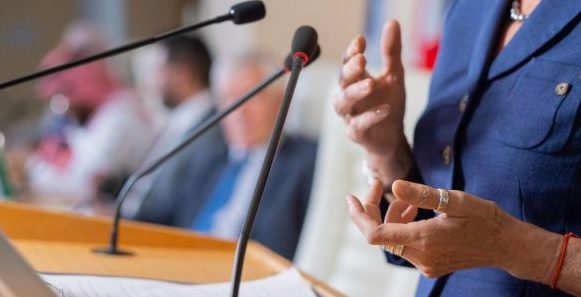
Dangerous rhetoric of UK home secretary putting trafficking survivors at risk
Critics accuse UK Home Secretary Shabana Mahmood of putting lives at risk with her dangerous statements about trafficking survivors. Mahmood accused survivors of making “vexatious last-minute claims” relating to modern slavery to prevent their forced removal.
Mahmood made her dangerous statement after a high court blocked the deportation of an Eritrean man last week. The man said traffickers exploited him in Libya, making him eligible for support under the UK’s National Referral Mechanism. Because the Home Office failed to properly investigate his claim, the court ruled his removal unlawful.
After the ruling, Mahmood tried to overturn the decision but three appeal judges rejected her bid. This week, she announced plans to change modern slavery laws, allowing the government to continue deportations even when people make trafficking claims—a move that puts victims at grave risk.
Experts warn of real-life harm
After the court blocked the deportation order, Mahmood harshly accused migrants of “suddenly deciding that they are a modern slave on the eve of their removal.” Eleanor Lyons, the UK anti-slavery commissioner, called the statement “deeply concerning” and warned of its “real-life impact” on trafficking victims. Additionally, Lyons points out the flawed logic of Mahmood’s statement by stating that “victims of trafficking could not self-declare to be a victim of modern slavery, it is the Home Office who are the ‘deciders’.”
Speaking to the Guardian, Lyons stated,
Victims of modern slavery have endured horrific exploitation at the hands of criminals. Many victims are fearful of their traffickers and speaking about their experiences. Often they do not recognise themselves as ‘victims’ and have been told by their exploiters that the authorities cannot be trusted or they fear violence or reprisals against their families.
“That is why trained professionals, such as police, immigration officers and NGOs, are tasked with identifying potential victims of modern slavery, not the victims themselves. It often takes time for victims to disclose their exploitation because trauma, fear and control by traffickers run deep.
The government is currently detaining 28 people for removal under the “one in, one out” scheme. Charity Detention Action reports that seven show signs of human trafficking, yet officials have referred only one for modern slavery support. Despite this, the Home Office plans to continue the scheme, claiming people “misuse” the modern slavery system.
However, experts vehemently refute this claim. Ahmed Aydeed, a solicitor with expertise in trafficking law, said:
There is no abuse of the system as confirmed by parliament. There are, however, systemic government failings in following their own guidance on taking basic relevant information from victims of trafficking[…] These government failings further harm victims, benefit trafficking gangs and waste significant public funds.
